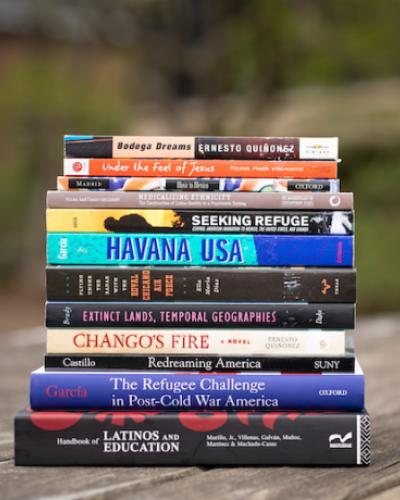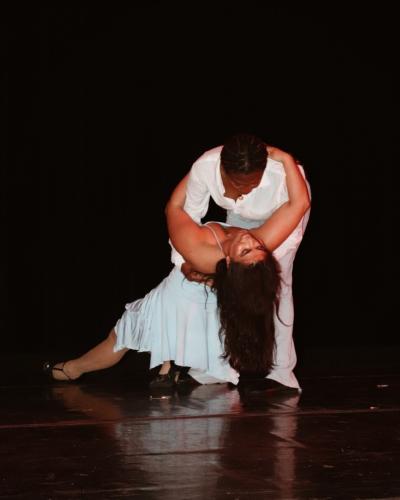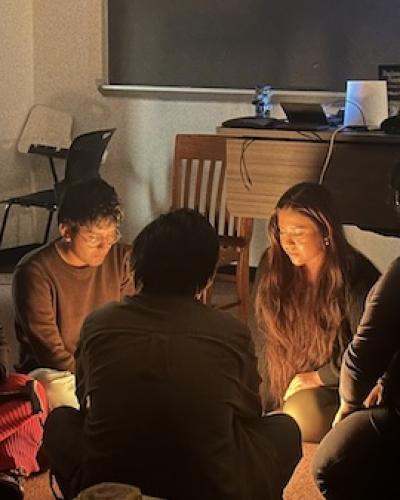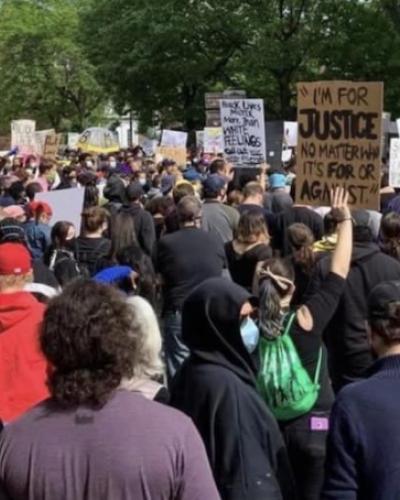On June 2nd, 2020 my mother and I attended the Black Lives Matter “We Can’t Breathe” Peaceful Protest in Poughkeepsie New York. My guess is close to 2000 people showed up. At least a hundred cops were there; they all had batons and zip-tie handcuffs on them. On top of that, there were military personnel stationed on the rooftops of the buildings we were passing. As my mom and I left the protest, we saw vans pulling up filled with cops covered in protective gear, armed with large guns, and holding protective shields.
During the march, most of the chants included “Black Lives Matter,” “Hands Up. Don’t Shoot” (whenever we were around cops), “‘Say his name,’ ‘George Floyd!’” and once in a while there were chants for Breonna Taylor. At the end, everyone took a knee and listened as the organizers spoke about how we need to keep ourselves and our community accountable if we hope to see real change.
I was happy to see that the protestors represented a variety of races, cultures, and age groups. Also, as we walked past different cars and houses, people would wave and honk in support. I even caught a glimpse of members of the Crips and Bloods tying their bandanas together to show solidarity. Leaving the parade I felt proud of myself and everyone else who attended.
Although it was an overall great experience, there were aspects of the protest that scared me for the future. As my mother and I walked to where the protest meet up was supposed to be, we were already pretty anxious only to have a white man slow down his truck as he passed us, honk his horn so that we would look at him, and stuck out his middle finger at us.
Also, I was sad to see the number of cops there were with their batons out at the ready, dressed in shiny riot gear while I know doctors and nurses have been resorting to trash bags as protection in the COVID-19 pandemic.
At the protest, the lack of emphasis on the other victims other than George Floyd who have yet to receive justice was tough to see as well. I understand that the video of George Floyd’s murder was the ultimate catalyst for the resurgence of the Black Lives Matter movement; however, I question whether other intersectional forces were at play. The majority of chants that mentioned a victim of police brutality were for Floyd, but only a few were for Breonna Taylor, Ahmaud Aubry, or others. Although Black women are killed, raped, and beaten by law enforcement at comparable rates to men, it seems to me that way more mobilization occurs after a cisman is killed.
I sadly heard no mention of Tony McDade, a Black trans man murdered by an officer on May 27th. I am aware of the fact that Black trans victims of police brutality barely get people’s attention, but at the protest I actually saw this sentiment in action. A girl who I went to high school with tried to start a chant saying “Black Trans Lives Matter!” and I immediately noticed that the number of voices had died down and those that remained were more hesitant to repeat it. A woman next to me even said, “You’re doing too much now.” Needless to say, it was disheartening to see misogynistic and transphobic undertones persist within the message of the greater movement.
Lastly, those who use the instances of looting, rioting, or protestors not being peaceful as a way to undercut the entire movement also really gets under my skin. I find it funny that while many of these same people believe that the murder of George Floyd was wrong, they always find a way to add a “but” to discredit the movement.
After I got home from the protest, I went on my social media and saw someone, who had previously posted a black square on his Instagram to show his support for the BLM movement post that “A protest that forces the closing of the Mid-Hudson Bridge and blocks essential workers from getting home to their families is not peaceful protesting!”
What was especially infuriating and hurtful was that I once considered this person a friend. We sat next to each other every day for three years in high school band practice. Also, he and I made up part of the very few Latinos from our predominantly white high school. On top of that, and I wish I were making this up, but we both have Afrolatinx parents; my mom is an Afrolatina who was born and raised in Colombia and his father is half African American and half Venezuelan.
Since this person and I shared a similar experience, I thought we would share the same beliefs on the BLM movement. His stance, however, was a painful and important reminder that Latinxs can be just as problematic as anyone else. I cannot assume those in the Latinx community are automatic allies just because our community has received a lot of the same discrimination as those in the Black community. I have to hold my fellow Latinxs accountable in the fight against racism just as much as I was willing to pin ignorance upon white Americans. We cannot ignore that our countries have their own versions of the same problem.
Joao Pedro was a fourteen-year-old murdered by police in Brazil on May 14th. On May 29th, Alejandra Monocuco was a trans woman left to die with coronavirus symptoms by paramedics in Colombia who ‘refused to treat her’ because she was HIV positive. Anderson Arboleda, a 22-year-old man, was killed by a police officer in Colombia on May 21st. All three victims were Afrolatinx.
We have to keep addressing all of the problems we Latinxs perpetuate like colorism, racism, machismo, homophobia, transphobia, etc. as well as the oppressive systems that target marginalized communities in Latin America.
I think back to the white man who stuck out his middle finger at my mother and me as we walked to the protest and it’s very easy to blame all racism on this kind of person; this man fits my expectations of ‘the enemy.’ I can more easily understand his position - one of blatant racism. However, my classmate treating the protest as a bigger issue than the reason for protesting is a much tougher pill to swallow.
Ultimately, I think this protest and situation have taught me to hold those in my own community accountable just as much as I would other communities where racism is involved. Just as people from all walks of life were at the protest, any person can have implicit biases and views that perpetuate systemic racism. I cannot assume who is an ally and who is not based on culture or race because then I would be letting my own biases run rampant too.
As a graduating senior, I would just like to say that I am extremely proud of how the Cornell student BIPOC communities are not only mobilizing within the BLM movement, but also willing to call out their own communities’ biases and problems as well. I believe that we will keep working hard to affect change and I believe that change will come.
Natalia Rebollo '20, Major in Biological Sciences with a concentration in Animal Physiology and a Minor in Latina/o Studies.




